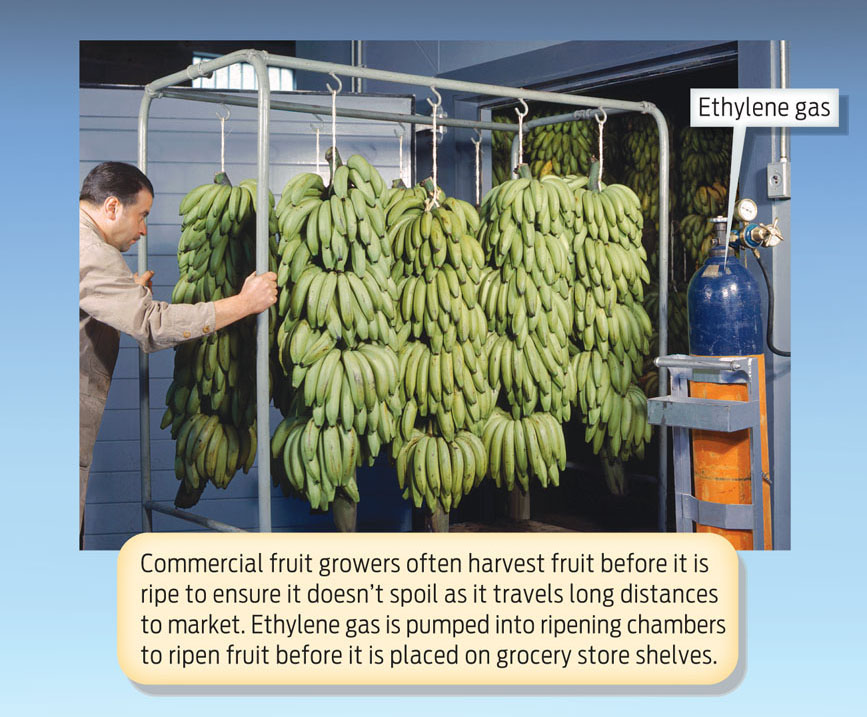 Does one bad apple really spoil the bunch?
Does one bad apple really spoil the bunch?
ETHYLENE A gaseous plant hormone that promotes fruit ripening as one of its effects.
ANSWER: This old adage is true, and its truth can be shown empirically: put a ripe apple in a bowl of unripe ones and the unripe neighbors will quickly ripen. That’s because ripe fruit—bananas and apples, especially—emit ethylene, a gaseous plant hormone, one effect of which is to promote ripening. In a confined space, the ethylene gas collects and causes nearby fruit to ripen through the loss of chlorophyll and the breakdown of cell walls. The result is the conversion of a hard, green fruit to a soft, ripe one. Commercial fruit growers take advantage of the action of ethylene when they ship fruit to distributors. Often, fruit is picked while still green and then exposed to natural or synthetic ethylene just before arrival in grocery stores to hasten ripening. This method works especially well with tomatoes, avocados, bananas, and cantaloupe. In some cases, fruit growers remove ethylene from storage containers in order to prevent ripening so that fruits can be stored for a long time—apples that are picked in fall and sold in summer, for example (INFOGRAPHIC 32.9).
Ripe fruit produces ethylene, which can speed the ripening process in neighboring fruit. Ethylene is used commercially to ripen fruit that is picked and transported while still green.

As a plant hormone, ethylene does more than ripen fruit. It is responsible for a number of different aging effects in plants—including leaf dropping in autumn.